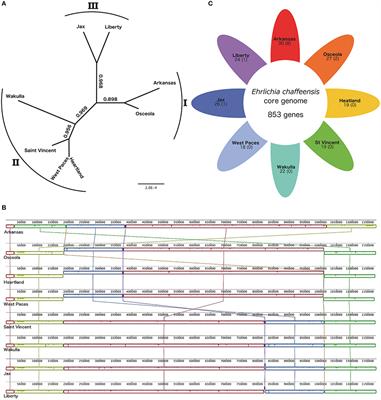ORIGINAL RESEARCH
Published on 25 Jan 2017
Comparative Genomics of the Zoonotic Pathogen Ehrlichia chaffeensis Reveals Candidate Type IV Effectors and Putative Host Cell Targets

doi 10.3389/fcimb.2016.00204
- 3,029 views
- 3 citations
28k
Total downloads
135k
Total views and downloads
ORIGINAL RESEARCH
Published on 25 Jan 2017

ORIGINAL RESEARCH
Published on 29 Sep 2016

MINI REVIEW
Published on 22 Sep 2016

ORIGINAL RESEARCH
Published on 20 Sep 2016

HYPOTHESIS AND THEORY
Published on 25 Aug 2016

REVIEW
Published on 03 Aug 2016

ORIGINAL RESEARCH
Published on 29 Jul 2016

REVIEW
Published on 20 Jul 2016

ORIGINAL RESEARCH
Published on 14 Jul 2016

ORIGINAL RESEARCH
Published on 27 Jun 2016

PERSPECTIVE
Published on 22 Jun 2016

MINI REVIEW
Published on 09 Jun 2016
